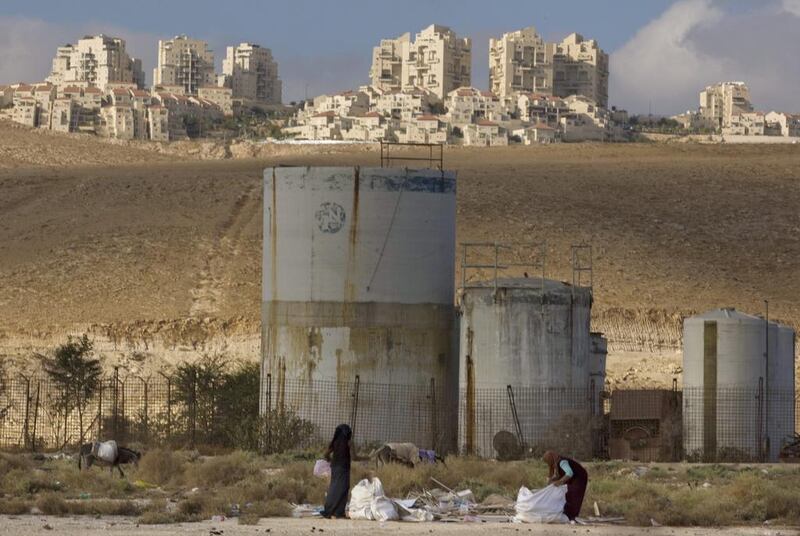BRUSSELS // The European Union on Wednesday backed the labelling of products from Israeli settlements, which are deemed illegal under international law.
The West Bank-based Palestine Liberation Organisation said the decision was a positive step but did not go far enough.
“EU labelling of settlement products is a step in the right direction but insufficient,” the PLO’s negotiations affairs department said on Twitter. “Products of a war crime must be banned not just labelled.”
PLO secretary general Saeb Erekat also welcomed the decision, calling it a “significant move toward a total boycott of Israeli settlements, which are built illegally on occupied Palestinian lands”.
“We believe that more actions are necessary to hold Israel accountable for the crimes it continues to commit against the land and people of Palestine,” he said.
The European Commission, the EU’s powerful executive, earlier said it “adopted this morning the interpretative notice on indication of origin of goods from the territories occupied by Israel since June 1967”.
The notice is effectively a set of guidelines for labelling products from Jewish settlements in the Palestinian territories and annexed east Jerusalem and the Golan Heights, all occupied by Israel in the 1967 Six Day War.
The settlements are considered a major stumbling block to peace efforts since they are built on land that Palestinians see as part of their future state.
The first instructions are set to be for food and other industries. The labels will include a specific reference that products come from a settlement but the wording would be left to the member states, sources said.
Three EU countries – Belgium, Britain and Denmark – already have national guidelines on labelling, they added.
The Israeli foreign ministry responded to the decision by summoning the EU’s envoy in protest. It condemned the move, saying it could have implications on Israel’s relations with Europe.
“We regret that the EU has chosen, for political reasons, to take such an exceptional and discriminatory step, inspired by the boycott movement,” the ministry said.
The Jewish state has mounted a long and vocal campaign against the labelling plan, which was first proposed in 2012.
But European Commission vice-president Valdis Dombrovskis insisted that the decision was “a technical issue not a political stance”.
He said the guidelines had to be taken as three member states – Britain, Belgium and Denmark – had already imposed special labelling on their own, forcing the EU to streamline measures throughout the 28 nations.
Despite Mr Dombrovskis’ apparent attempt to appease Israel, however, the decision underscores the EU’s unhappiness over the Jewish state’s continued expansion of settlements.
The bloc is now seeking to differentiate between its relations with Israel and with the settlements, fearing that a continued status quo would never push the Israeli government into changing its settlement policies.
The EU’s decision comes a day after London mayor Boris Johnson faced criticism from the boycott, divestment and sanctions (BDS) campaign aimed at ending Israel’s occupation of the Palestinian territories over comments he made during a trip to the Jewish state.
“I cannot think of anything more foolish than to say you want to have any kind of divestment or sanction ... or boycott, against a country that, when all is said and done, is the only democracy in the region,” he said on Monday.
After Israel’s foreign ministry posted a video of Mr Johnson’s comments on its Facebook page on Tuesday, Omar Barghouti, a Palestinian rights activist and co-founder of BDS, compared the remarks to those of Britain’s former prime minister Margaret Thatcher, who once referred to Nelson Mandela’s party as a “terrorist” organisation.
“As Thatcher had done in support of apartheid South Africa, Johnson is desperately, and quite clumsily, trying to save apartheid Israel from its accelerating isolation as the world’s pariah.”
* Agence France-Presse, with additional reporting by Associated Press





